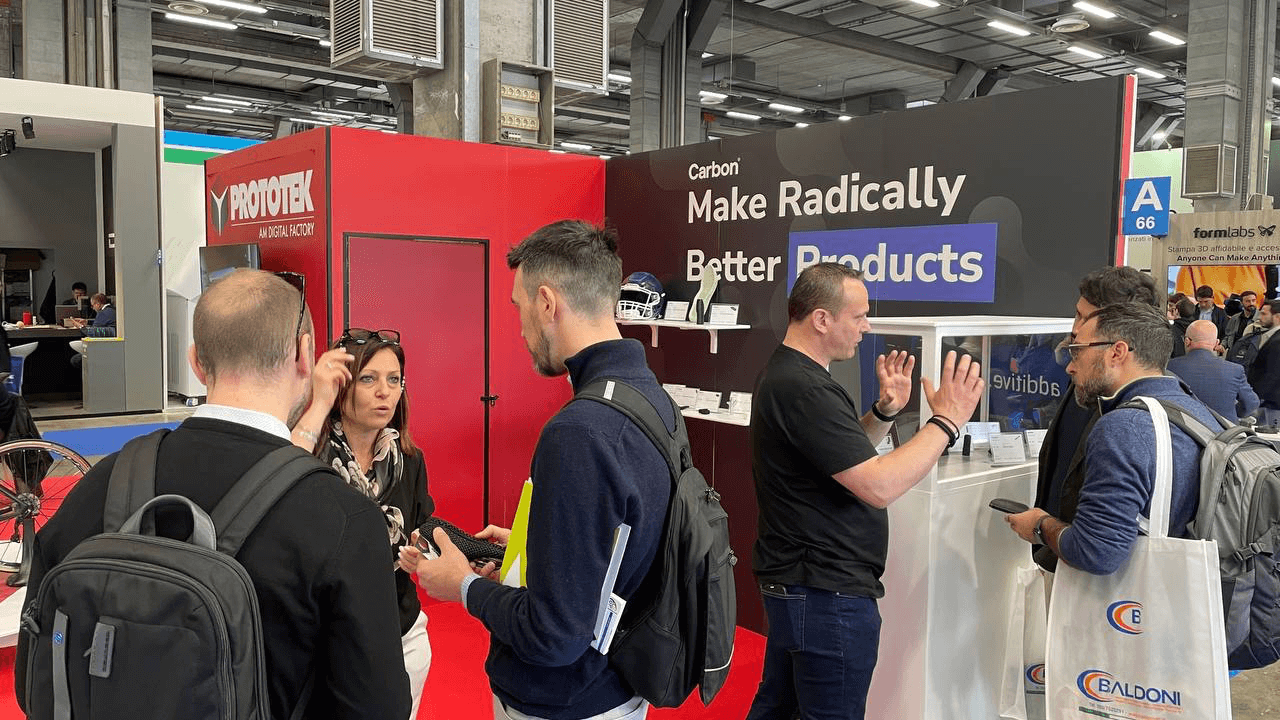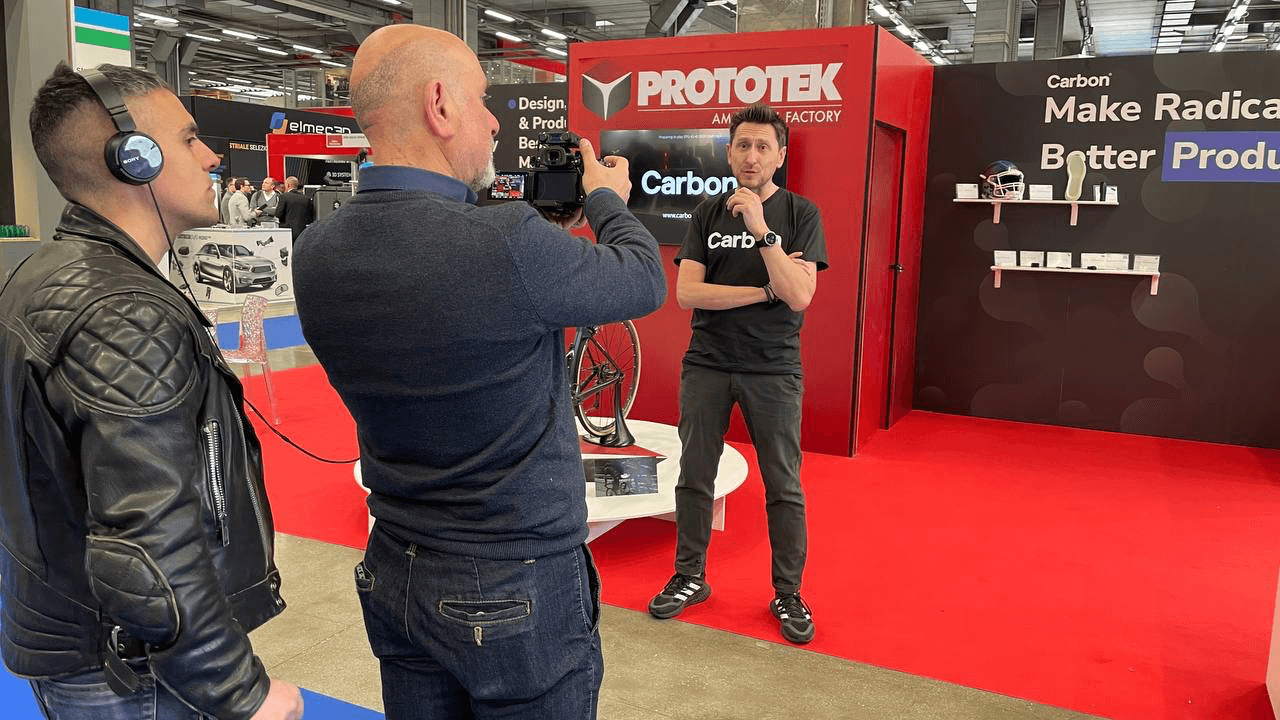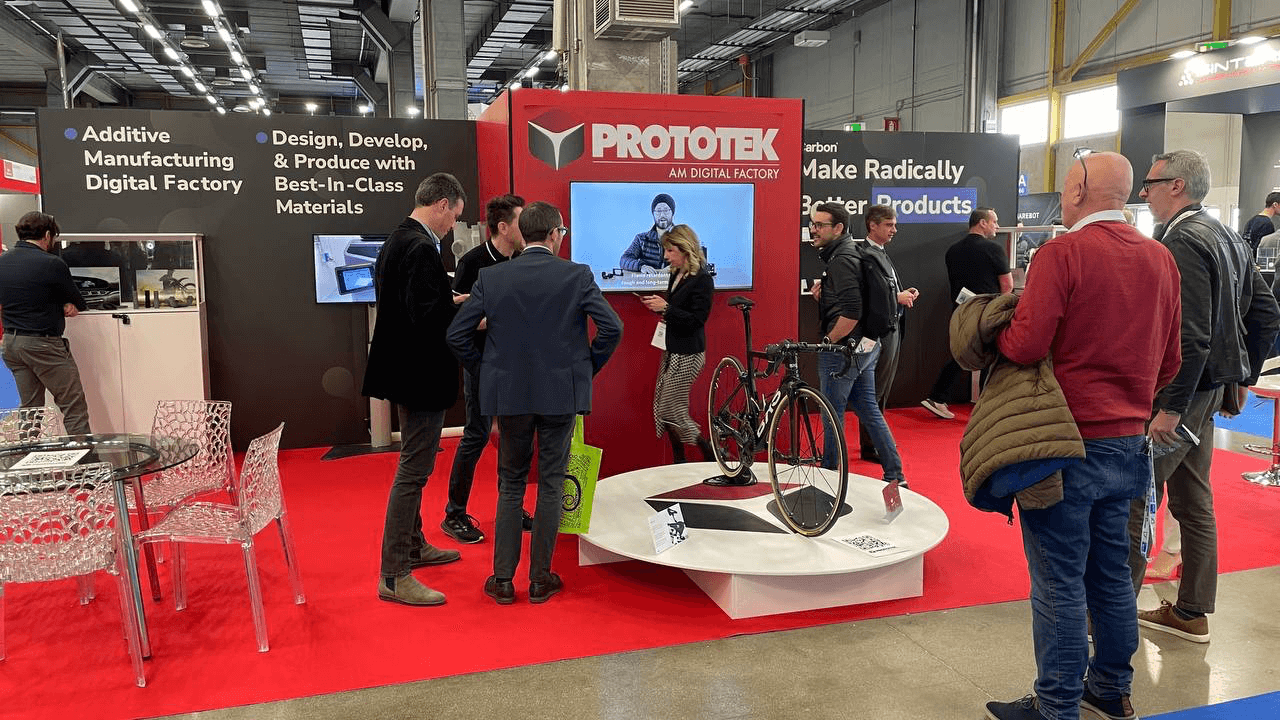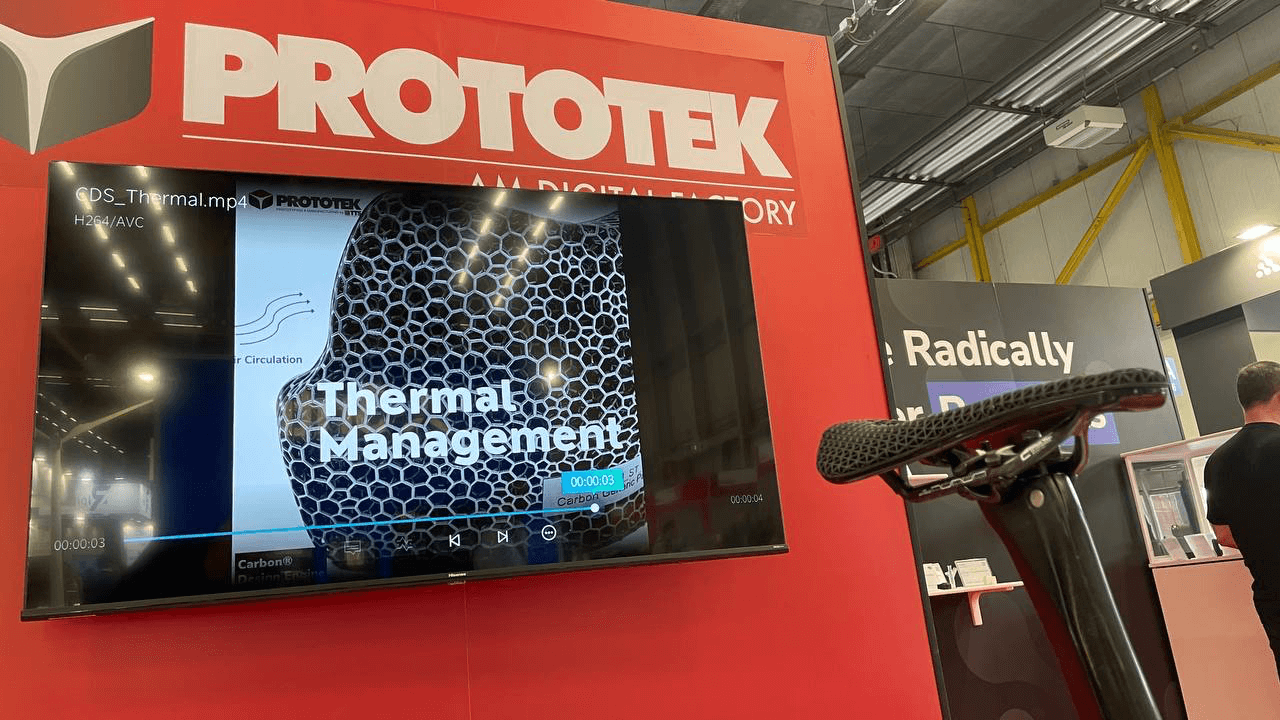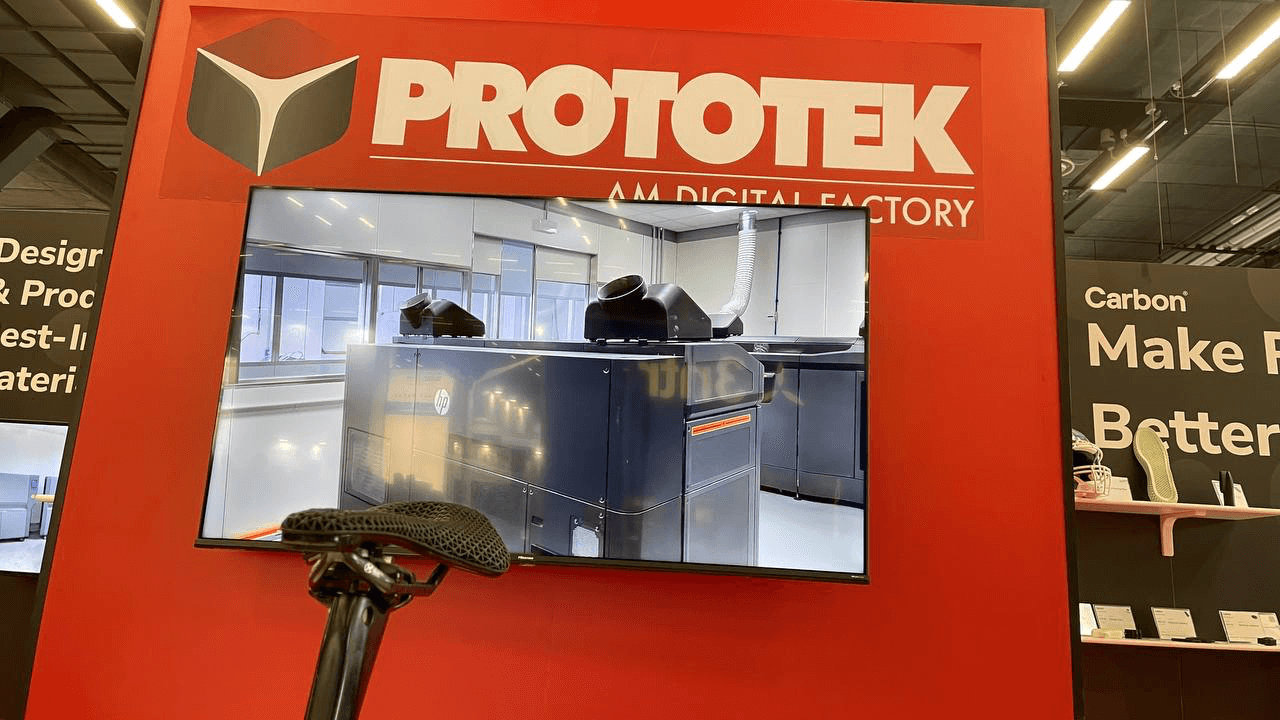3D printing materials
𝗔𝗠 𝗗𝗜𝗚𝗜𝗧𝗔𝗟 𝗙𝗔𝗖𝗧𝗢𝗥𝗬
High-Performance 3D Printing Materials for Prototyping and Production
At Prototek, we use the most advanced 3D printing materials — including high-grade thermoplastics and functional resins — processed through state-of-the-art additive manufacturing technologies.
Our goal is to deliver precision, repeatability, and mechanical strength across every project, from functional prototypes to end-use industrial components.
Thermoplastics and Functional Resins for Industrial 3D Printing
Our 3D printing materials, like thermoplastics and functional resins, are key to achieving superior quality in additive manufacturing and rapid prototyping. They ensure the ideal balance between mechanical performance, surface finish, and production flexibility, allowing engineers and designers to bring complex ideas to life with unmatched precision.
3D printing materials: THERMOPLASTICS
Among the most widely used thermoplastics, Nylon PA12 stands out for its strength, flexibility, and durability, making it ideal for mechanical parts and automotive components.
Produced through HP Multi Jet Fusion (MJF) technology, PA12 offers excellent mechanical and environmental resistance, maintaining its properties over time even under stress.
This makes it the material of choice for long-lasting industrial parts, machine components, and electronic device housings.
Key Benefits of PA12 (HP MJF):
High tensile and impact resistance
Excellent dimensional stability
Superior chemical and temperature performance
Matte surface finish with fine detail accuracy
Another key thermoplastic, TPU (ESTANE® 3D TPU M88A), is a soft yet resilient polyurethane designed for applications requiring flexibility, impact absorption, and abrasion resistance.
It combines elastic performance with the robustness needed in demanding environments, such as industrial tooling or ergonomic components.
This material offers great dimensional stability, chemical resistance to oils and solvents, and a smooth, high-quality tactile finish.
Fully compatible with HP MJF technology, TPU ensures durability and precision, even in complex geometries and high-performance use cases.
3D printing materials: RESINS FOR PROTOTYPING
Carbon resins for prototyping such as UMA 90 are specifically designed for applications requiring fast prototyping of complex geometries.
These resins deliver excellent surface quality and definition, making them perfect for product design, jewelry, and creative industries that demand visual and functional fidelity.
Their short production times and ease of post-processing make Carbon UMA resins ideal for rapid iteration cycles — allowing designers and engineers to move from concept to prototype in record time, without sacrificing performance or appearance.
Another advanced resin, LOCTITE® 3D IND405, is a clear, semi-rigid, high-strength photopolymer suitable for functional prototypes and end-use components.
Key properties of LOCTITE® 3D IND405:
High impact resistance and dimensional accuracy
Matte surface finish, polishable for greater transparency
Compatible with Carbon® printers
Ideal for fluidic ducts, protective housings, and consumer goods
Mechanical performance comparable to unfilled polypropylene
This makes LOCTITE IND405 a versatile choice for applications that combine mechanical strength, precision, and aesthetics.
3D printing materials: POLYURETHANE AND EPOXY RESINS — Carbon DLS Materials
The Carbon DLS (Digital Light Synthesis) platform offers next-generation photopolymer resins engineered for industrial-grade additive manufacturing.
These include polyurethane elastomers and rigid epoxy polymers, each designed to deliver outstanding mechanical properties, dimensional precision, and resistance to dynamic stress.
Polyurethane Elastomers (EPU Series)
Elastomeric materials such as EPU 46 and EPU 45 deliver superior energy return and shock absorption, making them ideal for impact-resistant and flexible components like footwear, padding, and cushioning structures.
EPU 46 is optimized for lattice structures with variable density, providing both comfort and durability.
EPU 45, on the other hand, offers enhanced fatigue resistance under repetitive stress, making it ideal for long-term mechanical applications.
Both materials are biocompatible, sustainable (with up to 40% bio-based content), and recyclable through solvent-free processes — aligning performance with environmental responsibility.
Rigid Polyurethanes and Epoxies (RPU & EPX Series)
For rigid applications, RPU 70 — a polyurethane-based polymer — offers high mechanical and thermal resistance, making it suitable for functional prototypes and structural parts.
Epoxy materials such as EPX 82 and EPX 86 deliver excellent heat resistance, dimensional stability, and high hardness, ideal for automotive, mechanical, and thermal-resistant components.
These materials enable the production of high-strength parts capable of performing in extreme industrial environments, all while maintaining tight tolerances and fine surface finishes.
Why Choose Prototek for Industrial 3D Printing Materials
At Prototek, we provide not just materials — but complete additive manufacturing solutions.
Our engineering expertise and material knowledge ensure that each component meets the highest industrial standards, whether it’s a single prototype, a functional test part, or a low-volume production batch.
What sets Prototek apart:
Certified industrial-grade materials (PA12, TPU, RPU, EPX, EPU, UMA, IND405)
In-house HP MJF and Carbon DLS technology
Excellent surface finishing and repeatability
Fast turnaround and reduced production costs
Full design flexibility — no tooling required
Environmentally conscious production processes
From thermoplastics to advanced photopolymer resins, we help companies prototype, validate, and manufacture parts that meet real-world performance demands.
3D printing materials: APPLICATIONS
Our 3D printing materials are used across multiple sectors:
Automotive and industrial machinery
Packaging and automation systems
Consumer products and design
Footwear and wearable technology
Each application benefits from the freedom of design, reduced lead times, and functional performance that only additive manufacturing can provide.
Contact Prototek's Experts
to request a consultation or a quote for your next 3D printing project.
Subscribe to the Newsletter
Scrivici subito
Vuoi ricevere informazioni sull’acquisto di una Stampante 3D?
Compila il Form: un nostro Esperto ti contatterà.


